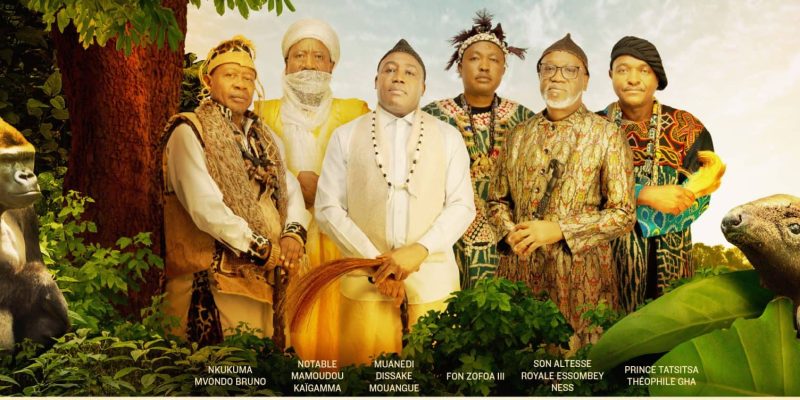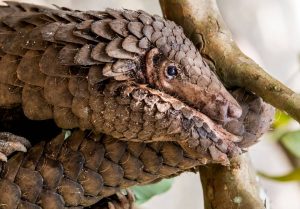Cameroon's traditional chiefs are joining forces to help protect the country's forests and wildlife, considered to be the cornerstone of Cameroon's cultural heritage. Mobilised by the nature conservation organisation WildAid, these guardians of tradition are saying no to pangolin meat. Researchers have shown that at least 500,000 to 2.7 million pangolins are caught each year in Central Africa, at the risk of biodiversity and the ecosystem role of this animal in the forest.
Despite its supposed responsibility for transmitting the Covid-19 virus to humans, the pangolin is the most poached animal on the planet, well ahead of the rhinoceros and the elephant. In Cameroon in particular, a survey carried out by the conservation organisation WildAid and the Central African Bushmeat Action Group in 2022 revealed that pangolin was the second most commonly consumed form of bushmeat after porcupine, with 49% of bushmeat consumers in the towns of Douala and Mbalmayo saying they had eaten pangolin in the previous 12 months.
WildAid also conducted a second survey of the general public in five towns in Cameroon. It revealed that awareness of the 2017 law protecting pangolins was very low. Only 29% of respondents knew that it was illegal to kill and trade all species of pangolin.
To reverse this trend, traditional Cameroonian leaders are joining forces with WildAid to call for the protection of the country’s forests and the wildlife that lives there, such as the endangered pangolin. “Our story began in the vast, wild forests of Cameroon, where animal life flourished and Mother Nature reigned. She fed us, cherished us and cared for us. Now we have to defend her and protect all the wild animals that are part of her”, says Muanedi Dissake Mouangue, the traditional chief of Bonamoukouri-Bonakouamouang, in the Littoral region.
“Our culture teaches us to respect nature and honour our traditions. Pangolins are a symbol of our incredible and unique forest, of Cameroonian heritage and a pillar of our identity. Eating pangolins will lead to their extinction, and therefore to the extinction of a symbol of our culture. Let’s protect our forests and the wildlife that lives there. And let’s start by saying NO to pangolin meat”, says Nkukuma Mvondo Bruno, the traditional chief of Minkok-Bityili, in the southern region.
A vital animal for forest ecosystems
The appeal by Cameroon’s traditional chiefs is part of the “Say no to pangolin meat” campaign, launched in 2022 with the support of football legends Rigobert Song, Roger Milla and Patrick Mboma, as well as musicians Stanley Enow and Locko, and visual artist Bright Toh. The campaign aims to raise awareness of the crucial role pangolins play in maintaining a healthy environment, and highlights Cameroon’s potential to become a leader in conservation in Africa by protecting these unique animals. The campaign is taking place in Douala, Yaoundé, Mbalmayo, Ebolowa and Bertoua.
Read also- CAMEROON: Government concerned about the gradual disappearance of pangolins
Pangolins are essential to the forest ecosystem and help combat parasites that can also cause major damage to agricultural crops. A single pangolin can consume up to 70 million ants and termites in a year, or almost 200,000 insects a day. By consuming these harmful insects, pangolins help to regulate insect populations and protect Cameroon’s agricultural sector, which employs around 43% of the country’s workforce and provides a livelihood for around 70% of the population.
“The pangolin, the protector of our forests and soils, must be safeguarded to prevent damage to the environment and the loss of our cultural identity. Every living creature found in Cameroon is an integral part of its culture and traditions. We need to be aware of the importance of protecting pangolins, otherwise we will lose far more than we can imagine”, warns Jennifer Biffot, WildAid’s French-speaking representative in Central Africa.
Cameroon is home to three species of pangolin: the giant pangolin, the white-bellied pangolin and the black-bellied pangolin. Aware that these species are in danger of extinction, the Cameroonian government took a decision in 2017. This prohibits the hunting, capture, slaughter and trade of all species of pangolin in Cameroon.
Boris Ngounou








You must be logged in to post a comment.